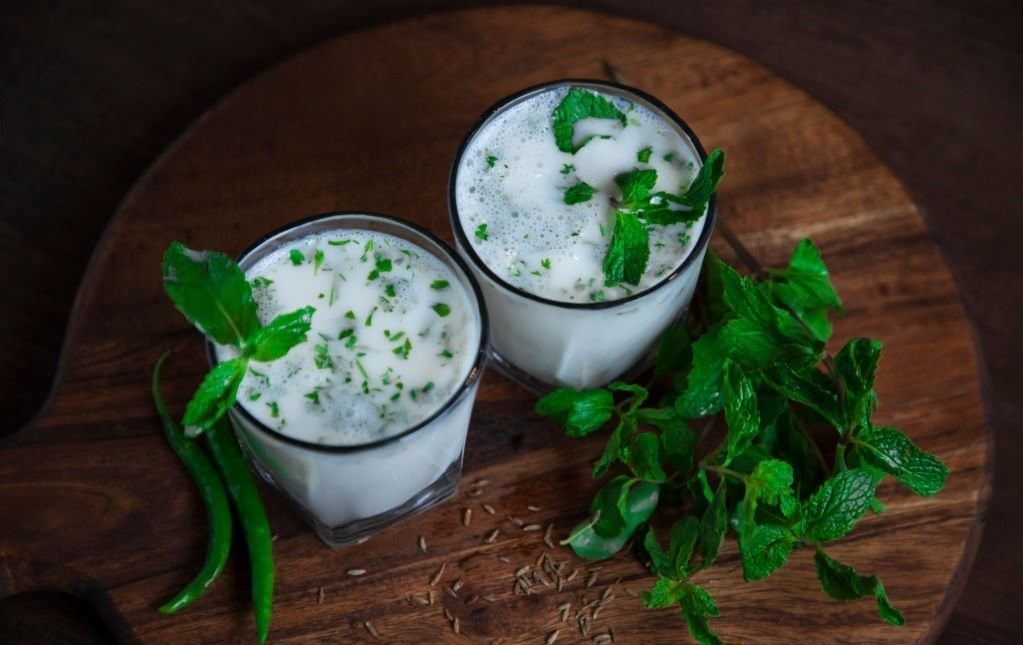Does Buttermilk Help in Weight Loss? Exploring the Facts
While buttermilk will not miraculously melt away extra pounds, it can be a useful supplement to a well-rounded weight loss diet.

In today's health-conscious society, weight loss has become a hot topic of discussion. People are constantly seeking effective and sustainable methods to shed those extra pounds. One such popular beverage that has gained attention for its potential weight loss benefits is buttermilk. But does buttermilk truly contribute to weight loss, or is it just another health myth? In this blog, we will delve into the scientific research behind the claims and explore the facts about buttermilk and its role in weight loss.
Understanding Buttermilk and its Composition
Buttermilk is a fermented dairy product traditionally made by churning butter from cultured cream. It is a rich source of vitamins, minerals, and probiotics, which are beneficial bacteria that promote gut health. Buttermilk contains essential nutrients such as calcium, potassium, and vitamin B12, making it a nutritious addition to any diet.
The Role of Probiotics in Weight Loss
Probiotics are live microorganisms that provide numerous health benefits, including weight management. Several scientific studies have investigated the impact of probiotics on body weight and have found promising results. Probiotics can influence the gut microbiota composition, which plays a vital role in various metabolic processes, including digestion and nutrient absorption.
A study published in the journal Obesity Reviews analyzed the effects of probiotics on weight loss. The researchers concluded that certain strains of probiotics, including those found in buttermilk, can aid in weight loss by reducing body weight, body mass index (BMI), and fat mass. Probiotics achieve this by enhancing the breakdown of dietary fats, increasing satiety, and improving insulin sensitivity.
The Thermogenic Effect of Buttermilk
The thermogenic effect refers to the increase in metabolic rate that occurs after consuming certain foods. Some foods require more energy to digest, leading to higher calorie expenditure and potential weight loss. Buttermilk has been suggested to possess a thermogenic effect, aiding in weight management.
A study published in the European Journal of Clinical Nutrition investigated the thermogenic effect of different dairy products, including buttermilk. The results indicated that consuming dairy products rich in calcium and protein, such as buttermilk, led to a significant increase in thermogenesis compared to other foods. The researchers suggested that the combination of calcium and protein in buttermilk may contribute to its thermogenic properties and potentially aid in weight loss.
Buttermilk as a Low-Calorie Beverage
Weight loss often requires a reduction in calorie intake. Opting for low-calorie beverages can be an effective strategy to create a calorie deficit. Buttermilk can be a suitable choice in this regard, as it is relatively low in calories compared to other dairy beverages.
A cup of buttermilk contains approximately 99 calories, making it a healthier alternative to calorie-dense drinks like soda or fruit juices. By substituting high-calorie beverages with buttermilk, individuals can reduce their overall calorie intake while still enjoying a refreshing and nutritious drink.
SUMMARY
While buttermilk alone cannot magically melt away excess pounds, it can be a beneficial addition to a well-rounded weight loss plan. The probiotics present in buttermilk can positively influence gut health and metabolic processes, potentially aiding in weight management. Additionally, the thermogenic effect and low-calorie content of buttermilk make it a suitable choice for individuals looking to shed weight.
It is important to note that weight loss is a complex process influenced by multiple factors, including diet, exercise, and overall lifestyle. Incorporating buttermilk into a balanced diet, along with regular physical activity, can contribute to sustainable weight loss. As with any dietary changes, it is advisable to consult a healthcare professional or a registered dietitian for personalized advice based on individual needs and goals.
Jayti Shah is a Clinical Nutritionist with a master's degree in Clinical Nutrition and Dietetics. She is a member of the Indian Dietetic Association (IDA). Over the last 9 years, she has helped 400 clients in their clinical and weight loss journeys. She works with SocialBoat as a nutrition consultant.
At SocialBoat, we offer custom diet plans and guided workouts to help you achieve your goals in a 360-degree approach. Our gamified experience ensures that you don’t find workouts boring and we reward you for being consistent with your efforts.

REFERENCES
- Angelakis, E., Armougom, F., Million, M., & Raoult, D. (2012). The relationship between gut microbiota and weight gain in humans. Future microbiology, 7(1), 91-109.
- Sanchez, M., Darimont, C., Drapeau, V., Emady-Azar, S., Lepage, M., Rezzonico, E., ... & Tremblay, A. (2014). Effect of Lactobacillus rhamnosus CGMCC1. 3724 supplementation on weight loss and maintenance in obese men and women. British Journal of Nutrition, 111(08), 1507-1519.
- Zemel, M. B., Thompson, W., Milstead, A., Morris, K., & Campbell, P. (2004). Calcium and dairy acceleration of weight and fat loss during energy restriction in obese adults. Obesity Research, 12(4), 582-590.
- Sun, X., Zemel, M. B., St Jeor, S. T., & Howard, B. V. (2004). Lack of association between 24 hour energy expenditure and body size and composition in normal weight and obese women. The American Journal of Clinical Nutrition, 79(3), 451-459.
- Butte, N. F., Wong, W. W., Hopkinson, J. M., Smith, E. O., & Ellis, K. J. (2000). Energy requirements derived from total energy expenditure and energy deposition during the first 2 y of life. The American Journal of Clinical Nutrition, 72(6), 1558-1569.
